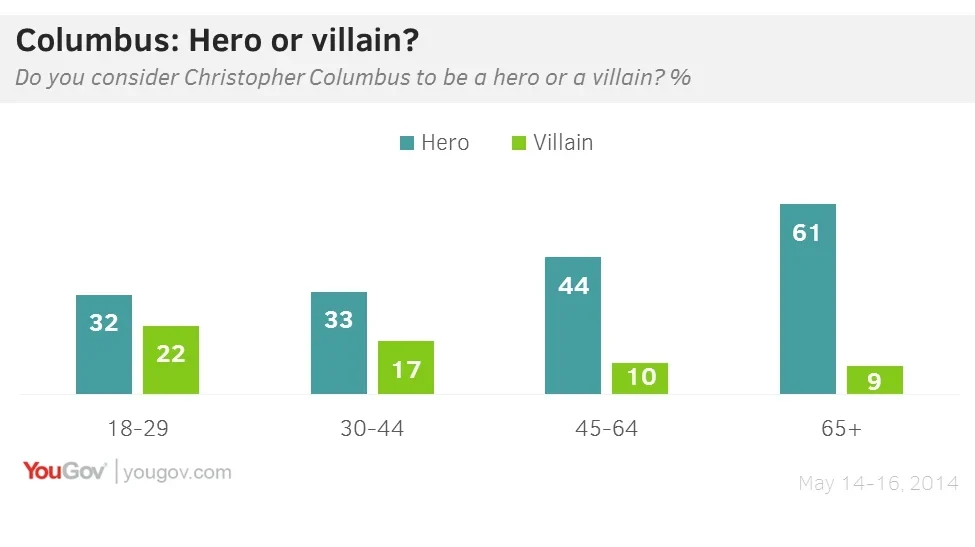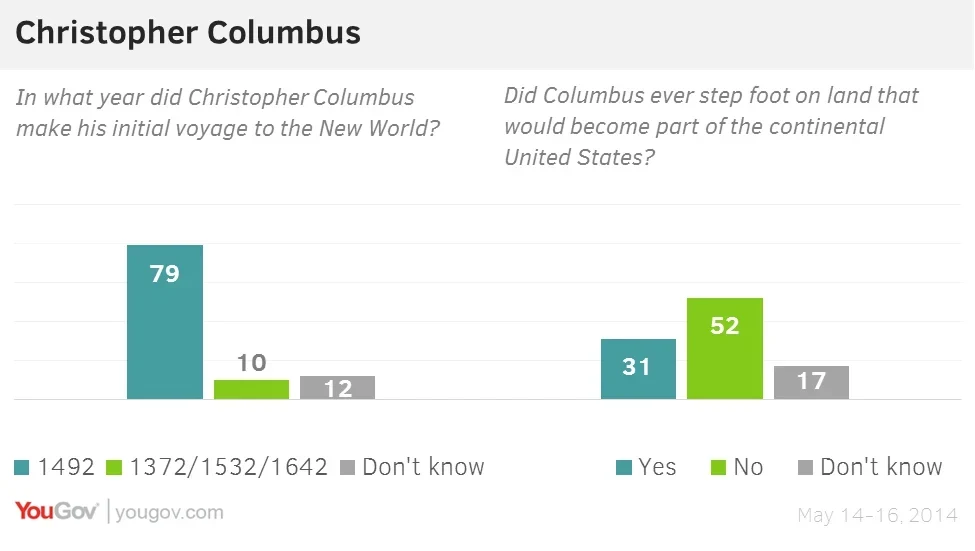Young Americans are much less likely than older people to say that Christopher Columbus is a hero
Last week explorer Barry Clifford announced that he had discovered a wreck off of the coast of Haiti that was likely to have once been Christopher Columbus' flagship on his first voyage, the Santa Maria. Clifford has been working at the site for some time, but has publicized the discovery in order to urge action to protect the wreck from looters - who apparently made off with a cannon that had previously been discovered at the wreck. Christopher Columbus had long been seen as the man who discovered America and a brave, heroic figure who opened up America to European colonization, but in recent decades that view of Columbus has been challenged, with historians highlighting the role he played in enslaving millions of Native Americans.
The latest research from YouGov shows that older Americans are much more likely to buy into the idea of Columbus the hero. 61% of over-65s say that he is a hero, compared to 9% who say that the is a villain. The younger a person is, the less likely they are to say that he is a hero and the more likely they are to say he is a villain, though even among under-30s people tend to say he is a hero (32%) rather than a villain (22%).

Americans do tend to have a good grasp of the history of Christopher Columbus. Most Americans (79%) knew that his first voyage was in 1492, though 11% of under-30s said that it was in 1642. Most Americans (52%) also know that he never set foot on land that is now the continental United States. 69% knew that his three ships were the Nina, the Pinta and the Santa Maria. Americans were more confused, however, when it came to Christopher Columbus' national origins. 39% knew, correctly, that he had been born in Genoa (modern day Italy), but 31% thought that he had been born in Spain, the country that sponsored his voyages to the Americas.

Asked whether they support Columbus Day being a federal holiday, 54% of the public backs it remaining a holiday, though 28% oppose it. Under-30s are the only group that tend to oppose (43%) rather than support (36%) the day being a federal holiday.
Full poll results can be found here.









